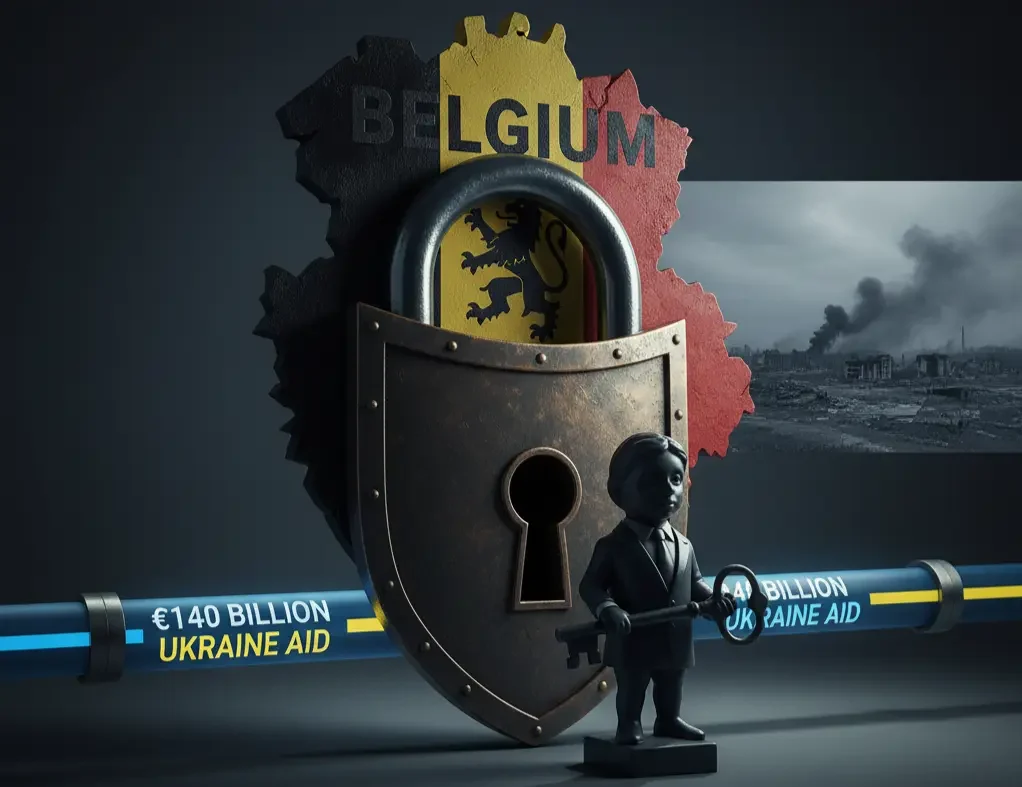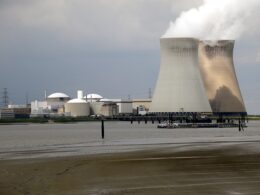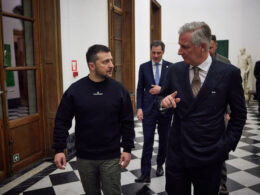Belgium is blocking a €140 ($160.7) billion loan mechanism to finance Ukraine’s war effort—despite Brussels holding €193 ($221.5) billion in frozen Russian central bank reserves.
The Commission called emergency talks for Friday after negotiations collapsed this week.
The breakdown comes as Ukraine faces a spring 2026 budget crisis. The country’s Finance Ministry projects needing $74.8 billion over 2026-2027, with only half that amount currently covered by confirmed international support.
The frozen assets loan mechanism is the primary tool to close the financing gap. Without it, EU member states would need to finance Ukraine’s budget shortfall directly from national treasuries—a politically toxic option after pandemic spending strained government budgets.
The standoff tests whether Western democracies can sustain Ukraine support when it requires political risk-sharing, not just symbolic commitments. Belgium holds the leverage because Euroclear, the Brussels-based clearinghouse, controls the frozen Russian funds.
Negotiations reach an impasse
The loan mechanism uses windfall profits from frozen Russian assets as collateral, but Belgium wants guarantees that it won’t bear liability if Russia ever reclaims the funds.
Deputy finance ministers from EU member states met on Tuesday but made no progress resolving Belgium’s demands for liability protection, according to two senior EU officials who spoke to Politico.
Economy Commissioner Valdis Dombrovskis warned, “the longer we now run delays, the more challenging it will become.”
The Commission will present Belgium with a memo outlining alternative funding scenarios involving EU borrowing. One frustrated deputy finance minister questioned whether €140 billion could materialize from national budgets: “There’s no way.”
What Belgium demands
Belgium holds the €193 billion in frozen Russian central bank reserves through Brussels-based Euroclear. Prime Minister Bart De Wever has outlined three conditions before supporting the asset-backed loan.
De Wever’s three conditions:
- Shared liability: Belgium demands guarantees that “every member state will share responsibility for the consequences” if the money must be returned to Russia. De Wever insists liability “cannot fall solely on Belgium.”
- Other countries participate: He requires that “every country holding immobilized assets must move with us, because we are the only ones doing this.” France holds about €19 billion ($21.8 billion) in frozen Russian funds, Luxembourg €10 billion ($11.5 billion)—but both have stayed silent about participating in the mechanism.
- Legal transparency: Belgium seeks “transparency about that risk and about the legal basis for this decision.”
De Wever faces his own budget crisis at home. Belgium has yet to pass its 2026 budget and must cut at least €10 billion, and De Wever warns he may resign if no deal emerges by Thursday, one day before the emergency Commission meeting.
The International Monetary Fund has indicated that Ukraine’s $8 billion program over three years depends on proof of financial viability, which requires the EU mechanism that Belgium continues blocking.
The impasse reveals a deeper problem: Western democracies structured Russia sanctions to avoid political risk at home. Freezing assets looked cost-free. Using those assets to help Ukraine requires someone to accept potential liability—nobody wants to go first.




